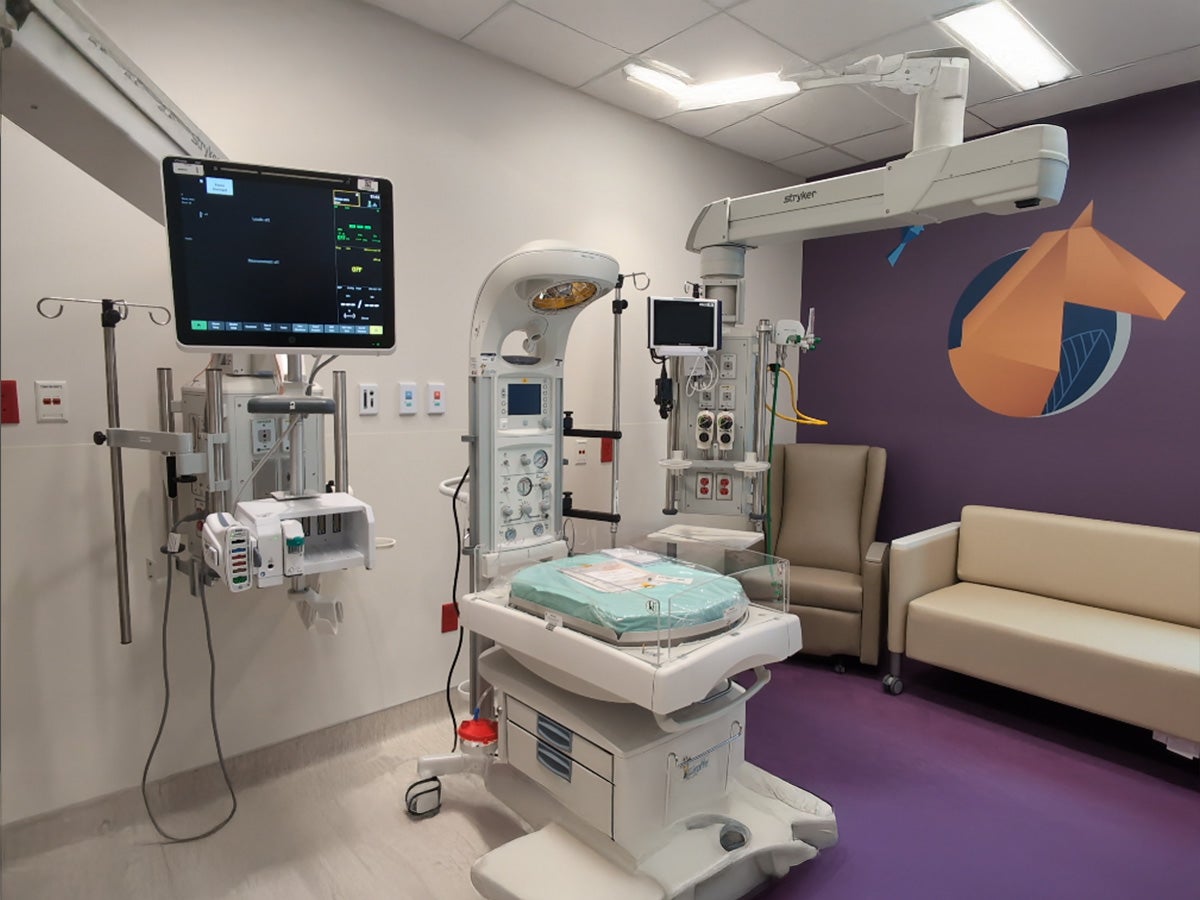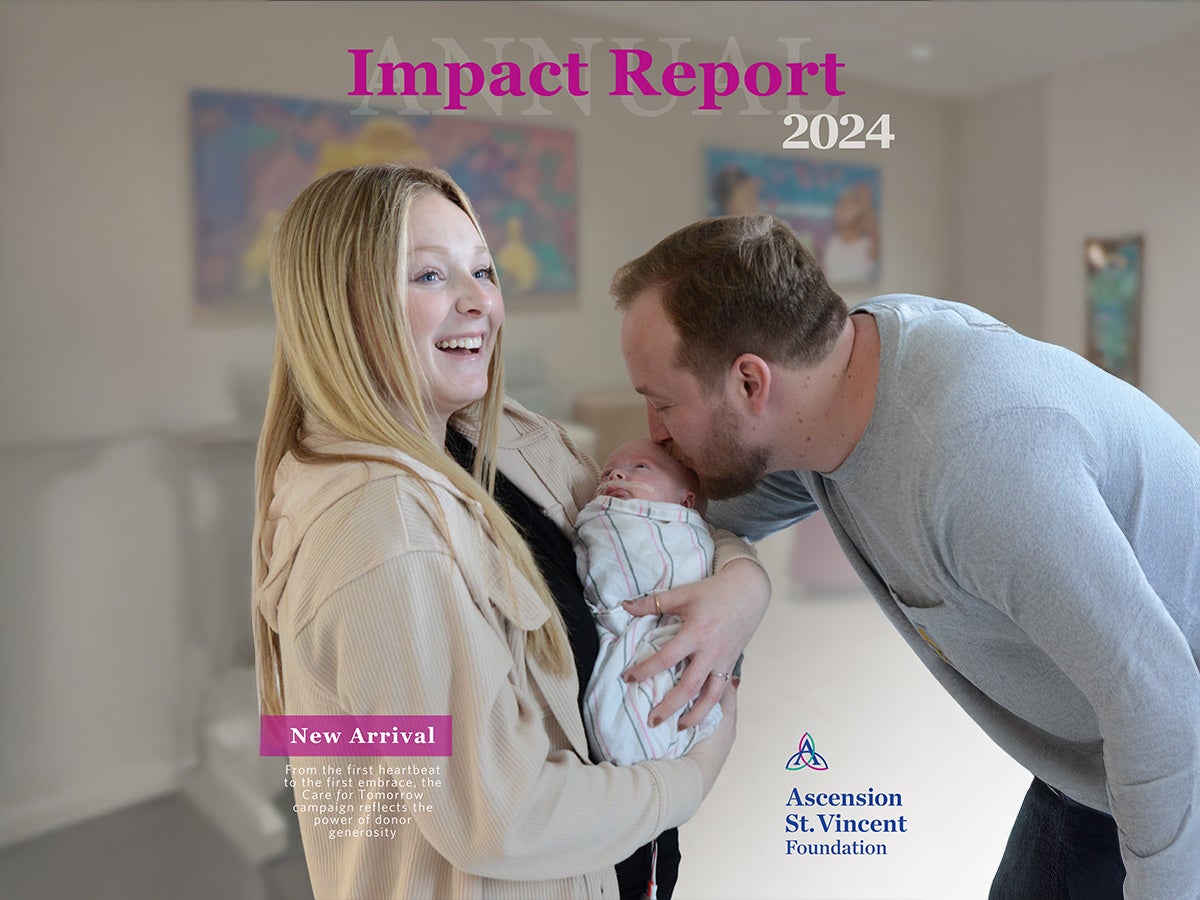Indiana Gov. Mike Pence visited St.Vincent in Indianapolis today to announce federal approval of HIP 2.0, the state’s Medicaid expansion plan. St.Vincent is a 22-hospital Ascension Ministry serving 57 counties in central and southern Indiana.
After a welcome by St.Vincent CEO Jonathan S. Nalli, St. Vincent Medical Group CEO Richard I. Fogel, MD, FACC, introduced the governor.
Pence announced that the U.S. Centers for Medicare & Medicaid Services has approved Indiana’s waiver for an alternative Medicaid expansion, known as the Healthy Indiana Plan 2.0, or HIP 2.0. The plan will cover about 350,000 people and become effective Feb. 1, 2015.
“This is excellent news for the hundreds of thousands of uninsured Hoosiers who fall through the cracks every day because they earn less than the poverty level, but too much to be eligible for Medicaid,” Nalli said. “This important expansion of healthcare coverage is consistent with our vision at St.Vincent of a healthcare system that leaves no one behind.”
HIP 2.0 is a private, market-based reform plan that replaces traditional Medicaid for all non-disabled adults. HIP 2.0 adds choices for Indiana residents that further the state’s consumer-driven model, while providing new incentives for members to take personal responsibility for their health.
HIP 2.0 participants are required to contribute to a POWER account, which is managed like a health savings account, and participants are rewarded for using preventive care. Those who contribute to their POWER account will have enhanced services, such as vision and dental, and it includes comprehensive prescription drug benefits. It also covers maternity services with no cost-sharing during the duration of the pregnancy.
Consequences for non-payment range from mandatory co-pays and basic coverage for those under 100 percent of poverty, to temporary loss of services for those over 100 percent of poverty.
With Indiana’s Medicaid expansion, 28 states and the District of Columbia have now expanded Medicaid to people with incomes up to 138 percent of the federal poverty level.
Ascension operates sites of care in seven states and the District of Columbia where Medicaid has been expanded – Connecticut, Illinois, Maryland, Michigan, New York, Washington State, and the District of Columbia – which has increased the number of paying patients and reduced uncompensated care.
Ascension also operates in eight states where Medicaid has not been expanded — Alabama, Florida, Idaho, Kansas, Oklahoma, Tennessee, Texas and Wisconsin.
“As the number of uninsured patient admissions and unpaid bills decreases, Ascension can help ensure the financial health of our safety-net hospitals and refocus our charity care on those who need it most,” said Peter M. Leibold, Chief Advocacy Officer, Ascension Health.



